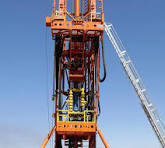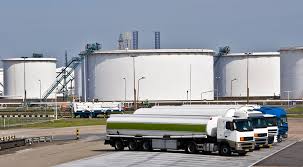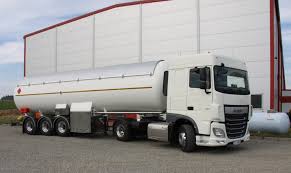Hydraulic Workover Unit Services in Nigeria; The Feasibility Report.

Nigeria, the largest oil producer in Africa, has long been a key player in the global energy landscape. With vast reserves of crude oil and natural gas, the country is critical to meeting global energy demands. However, the industry faces challenges ranging from aging infrastructure and complex well conditions to operational inefficiencies.
As a result, innovative technologies and services have become essential to maintaining and optimizing production. One such innovation making significant strides in Nigeria’s oil and gas sector is the Hydraulic Workover Unit (HWU) service.
Hydraulic Workover Units are versatile, self-contained systems designed to perform various well-intervention operations. These units use hydraulic force to insert or remove tubulars (pipes) in and out of wellbores under live conditions. Unlike traditional workover rigs, HWUs operate without the need for a rig floor, reducing the overall footprint and offering a safer, more cost-effective alternative for maintaining wells.
HWUs excel in several key operations, including:
Drilling and Fishing Operations: Retrieving lost or stuck equipment from wellbores.
Well Plugging and Abandonment: Sealing off non-productive or unsafe wells.
Snubbing Operations: Running or pulling tubulars under pressure without killing the well.
Casing Repairs: Restoring the integrity of well casings.
Enhanced Oil Recovery (EOR): Optimizing production in mature fields.
Nigeria’s oil and gas sector is characterized by numerous mature fields and aging wells. Maintaining these assets is essential for sustaining production and meeting economic goals. HWUs are increasingly seen as game-changers, offering the ability to address operational challenges while improving efficiency and safety.
Cost Efficiency: The cost of traditional rig-based workover operations is often prohibitive, especially for marginal fields or wells with declining productivity. HWUs provide a more affordable alternative by eliminating the need for heavy rig mobilization and reducing downtime.
This cost efficiency makes them particularly attractive for operators in Nigeria looking to optimize expenditure without compromising performance.
Improved Safety: Safety is a paramount concern in oil and gas operations, especially in regions with challenging logistics and security issues. HWUs offer a safer solution by minimizing the number of personnel required on-site and providing better control over well pressure. Their compact design also reduces environmental risks associated with large-scale operations.
Enhanced Operational Versatility: HWUs are adaptable to a wide range of tasks, from routine maintenance to complex interventions. Their ability to operate in confined spaces and challenging environments—such as offshore platforms and swampy terrains common in Nigeria—gives them a distinct advantage over traditional rigs.
Boosting Marginal Field Development: Marginal fields, often overlooked due to high development costs, represent a significant opportunity in Nigeria. HWUs’ cost-effective and efficient solutions make it feasible to exploit these fields, contributing to increased production and revenue generation.
While the benefits of HWUs are evident, there are challenges to widespread adoption in Nigeria:
Infrastructure and Expertise: The deployment of HWUs requires specialized equipment and trained personnel. Building local capacity and investing in infrastructure are critical to ensuring the effective utilization of these units.
Regulatory Hurdles: Regulatory frameworks need to evolve to accommodate and promote the use of advanced technologies like HWUs. Streamlined permitting processes and incentives for innovation can drive greater adoption.
Economic Volatility: Fluctuating oil prices and macroeconomic instability can impact investment decisions. However, the cost efficiency of HWUs positions them as a resilient solution even in challenging economic climates.
As Nigeria seeks to maximize the value of its hydrocarbon resources, HWUs are poised to play an increasingly important role. Their ability to enhance production efficiency, reduce costs, and minimize environmental impact aligns with the industry’s goals of sustainability and profitability.
Local partnerships and collaborations will be key to driving the growth of HWU services. By fostering relationships between international service providers and Nigerian companies, the industry can build a robust ecosystem that supports innovation and capacity building. Additionally, government policies that incentivize the adoption of advanced technologies will further accelerate the transformation of the oil and gas sector.
Hydraulic Workover Unit services are revolutionizing oil and gas operations in Nigeria. By addressing the challenges of aging infrastructure, operational inefficiencies, and high costs, HWUs offer a sustainable and effective solution for maintaining and optimizing production.
As the industry continues to evolve, the adoption of HWU technology will be instrumental in securing Nigeria’s position as a leading energy producer while driving economic growth and sustainability.
Table of Contents
EXECUTIVE SUMMARY 1.0 Business Overview 1.1 Description of the Business 1.2 Vision and Mission Statement 1.3 Business Objective 1.4 Critical Success Factor of the Business 1.5 Current Status of Business 1.6 Description of the Business Industry 1.7 Contribution to Local and National Economy 1.8 Legal Consideration 2. Marketing Plan 2.1 Description of the Service 2.2 The Opportunity 2.3 Pricing Strategy 2.4 Target Market 2.5 Promotional Strategy 2.6 Competition 3. Service Plan 3.1 Description of the Location 3.2 Raw Materials/ Supplies 3.3 Equipment 3.4 Service Cost 3.5 Stock Control Process 3.6 Pre-Operating Activities and Expenses 3.7 Operating Activities and Expenses 3.8 Project Implementation Schedule 4.0 Organizational and Management Plan 4.1 Ownership of the Business 4.2 Profile of the Promoters 4.3 Key Management Staff 4.3.2 Management Support Units 4.4 Details of Salary Schedule 5. Financial Plan 5.1 Financial Assumption 5.2 Start- up Capital Estimation 5.3 Source of Capital 5.4 Security of Loan 5.5 Loan Repayment Plan 5.6 Profit and Loss Statement 5.7 Cash flow Statement 5.8 Viability Analysis 6.0 Business Risk and Mitigation Factors 6.1 Business Risks 6.2 SWOT Analysis
Project Specification:
Additional Info
Get this Report
Direct bank transfer
To order the report, Please do pay the sum of ₦750,000 into
Account Name : Foraminifera Market Research Ltd
Account Number : 274 20 569 37
Account Name : Foraminifera Market Research Ltd
Account Number : 101 76 603 95
Account Name : Foraminifera Ventures
Account Number : 011 66 066 32
Make your payment directly into our bank account. Please use your Order ID as the payment reference. Your order will not be shipped until the funds have cleared in our account.
Instructions
After payment call us on 01 -29 52 413 / 08033782777 or email us at foraminiferamarketresearch@yahoo.com with the payment details. After payment confirmation, the soft copy of the report would be sent to you within 24 hours.



